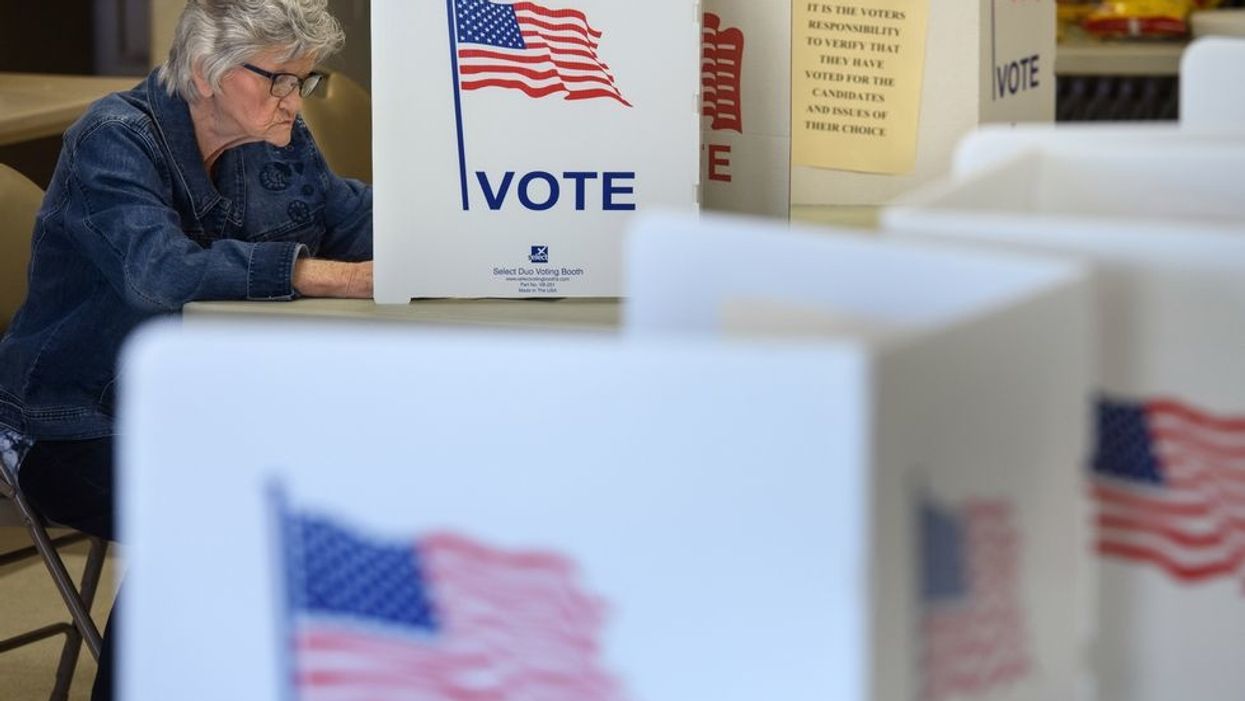Drutman is a senior fellow at the think tank New America and author of the forthcoming "Breaking the Two-Party Doom Loop: The Case for Multiparty Democracy in America."
Electoral reform is hot these days. Ranked-choice voting is getting most of the attention. But approval voting advocates are generating some buzz, too.
So what's the difference between the two, and which deserves your vote? The answer is easy: ranked-choice voting.
Both improve on our existing system of first-past-the-post plurality elections. But ranked-choice voting, or RCV, is superior for simple reasons: It makes more realistic assumptions about how voters and candidates behave. It assumes voters have meaningful preferences among their candidates, and that campaigns are strategic.
And though approval voting can seem simple at first, it actually requires voters to make more complex strategic calculations that are highly contingent on small variations in polling. Or, absent polling, voters must struggle to guess the strategic consequences of their votes amid candidates' and campaigns' propaganda.
By contrast, though RCV is slightly more complex up front, it allows for more sincere voting — without the worry a vote will wind up helping your less-preferred candidate, and without having to be overly strategic.
Democracies around the world have been using ranked-choice voting successfully for more than 100 years. Hundreds of major associations and political parties elect their leaders with it today. Approval voting has seen only limited use. And where it's been adopted, it typically winds up looking suspiciously like the plurality voting it was designed to replace.
Advocates of each proposal agree on one big thing: The status quo is terrible, because first-past-the-post elections render third parties and independents as spoilers and permit candidates to win without majority support. Both approval voting and ranked-choice voting attempt to solve this by giving voters more than one choice. This makes voting more expressive and encourages a broader diversity of candidates.
The big difference is that under approval voting, all ballots are a binary approve-disapprove and are treated equally. Under RCV, you rank your candidates and your ranking matters.
Approval voting is simpler to tabulate. Since all votes count equally, the winner is whoever gets the most votes. This simplicity is a point in its favor.
Ranked-choice voting seems more complex because, if no one wins a majority of first-preferences, there is a transfer of preferences and multiple rounds.
But approval voting turns out to be the more complex and volatile method — once you take campaign and voter strategies into account. Voting becomes highly strategic because voters understand each vote for an additional candidate helps increases that candidate's chance of winning. If you have genuine preferences (and many voters do), you want to do everything to help your preferred candidate — which means only voting for that person. So much for expressing multiple preferences.
For those who wish to better understand the differing strategic logic under the competing systems, click here for a look at a hypothetical election under both approval voting and RCV.
But if you really want to understand it, come up with your own examples and work them out. You'll see how approval voting elections usually wind up looking pretty much like they do under plurality voting, only with a lot more cognitive strain and negative campaigning after all the complex game theory everyone has to go through. Uses of this system in nongovernmental contests — such as for University of Colorado student government, where nearly everyone "bullet votes" for just one candidate, and the Dartmouth board of trustees, where increasing bullet voting contributed to it being eliminated — demonstrate this tendency.
Under RCV, by contrast, voters really use their rankings to sincerely express their preferences. Certainly, you might find an unexpected result every now and then in a crowded field. But overall you'll find it's actually less cognitively taxing, because there's no complex strategic voting and results don't depend on slight variations in polling.
Proponents of each system also claim their preferred method privileges the candidates who appeal most broadly.
Approval voting advocates argue that candidates who are most broadly acceptable should win under their system, because most of the electorate will "approve" of that person. Thus approval voting can, in theory, reward someone who is almost everyone's second choice but the first choice of very few. But that assumes sincere voting and genuine indifference among voters. Such an assumption might be fine in rarefied mathematical computer simulations, but it's rare in the real world.
It's also unlikely a consensus second-choice would win under RCV. More likely, other candidates would appeal to the supporters of the consensus candidate, and the incentives of ranked-choice voting would reward the candidate who had the broadest support coalition. And candidates really do change their behavior to build bridges and appeal widely.
We will learn more soon. The city of Fargo voted to go with approval voting a year ago, so we will now have one test of it. And St. Louis may consider it next year, though the proposal there is for a two-round system that implicitly acknowledges the shortcomings of approval voting as a decisive system. These are certainly welcome experiments.
Meanwhile, the number of cities using RCV continues to grow, and several states may join Maine in the next few years. So in the coming decade we will continue to learn much more about how it works in practice.
Elections are at the core of democracy, and voting rules are hugely important in explaining variations in political outcomes and representation. Experts also overwhelmingly believe our first-past-the-post system is one of the worst ways to vote.
The growing interest in alternative systems signals America is finally figuring out what most of the world has known for a while: There are better ways to conduct elections than with single choices and plurality winners — an innovation when first used in 1430.



















